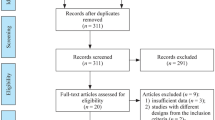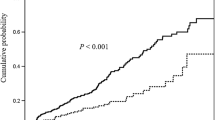Abstract
Background
Osteopenia and osteoporosis are commonly seen in inflammatory bowel disease (IBD). Vitamin D deficiency potentially contributes to diminished bone acquisition in childhood.
Objectives
The objectives of this study were to assess vitamin D in a group of Australian children with IBD and to ascertain associations between vitamin D status and key clinical factors, for example disease location and severity.
Methods
Data were obtained retrospectively from the records of children with IBD who had at least one measurement of serum 25-hydroxyvitamin D (25(OH)D) over a two-year period. Demographic variables, disease activity, inflammatory markers, disease location, duration, and therapy were recorded. Moderate and severe deficiency were defined as 25(OH)D <51 nmol/l and <30 nmol/l, respectively. Insufficiency was defined as 25(OH)D between 51 and 75 nmol/l.
Results
Overall, the mean 25(OH)D level in 78 children (104 measurements) was 71.2 (SD ± 26.5) nmol/l. Fifteen (19%) children were vitamin D deficient and 30 (38%) children were insufficient. Levels of 25(OH)D were not associated with disease location or use of immunosuppressive drugs. Children with vitamin D deficiency had greater corticosteroid exposure than those with normal status (P = 0.001). The mean 25(OH)D of 38 children treated with nutritional therapy at diagnosis was higher than for 17 children initially treated with corticosteroids (P = 0.04).
Conclusions
A high proportion of these Australian children with IBD were vitamin D deficient. This emphasizes the importance of monitoring vitamin D status, and treating deficiency, in the management of pediatric IBD. The possible benefit of nutritional therapy in protection against vitamin D deficiency requires further prospective study.



Similar content being viewed by others
References
Murch SH, Baldassano R, Buller H, et al. Inflammatory bowel disease: Working Group report of the second World Congress of pediatric gastroenterology, hepatology, and nutrition. J Pediatr Gastroenterol Nutr. 2004;39:S647–S654.
Kucharzik T, Maaser C, Lugering A, et al. Recent understanding of IBD pathogenesis: Implications for future therapies. Inflamm Bowel Dis. 2006;12:1068–1083.
Bernstein CN, Blanchard JF, Leslie W, Wajda A, Yu BN. The incidence of fracture among patients with inflammatory bowel disease. A population-based cohort study. Ann Intern Med. 2000;133:795–799.
Vestergaard P, Mosekilde L. Fracture risk in patients with celiac disease, Crohn’s disease, and ulcerative colitis: a nationwide follow-up study of 16, 416 patients in Denmark. Am J Epidemiol. 2002;156:1–10.
Sylvester FA. IBD and skeletal health: Children are not small adults!. Inflamm Bowel Dis. 2005;11:1020–1023.
Bernstein CN, Leslie WD. The pathophysiology of bone disease in gastrointestinal disease. Eur J Gastroenterol Hepatol. 2003;15:857–864.
Heaney RP, Dowell MS, Hale CA, Bendich A. Calcium absorption varies within the reference range for serum 25-hydroxyvitamin D. J Am Coll Nutr. 2003;22:142–146.
Holick MF. Vitamin D deficiency. N Engl J Med. 2007;357:266–281.
Jahnsen J, Falch JA, Mowinckel P, Aadland E. Vitamin D status, parathyroid hormone and bone mineral density in patients with inflammatory bowel disease. Scand J Gastroenterol. 2002;37:192–199.
Nic Shuibne T, Healy M, Cox G, et al. High risk of vitamin D deficiency in wintertime in adults with Crohn’s disease. Gastroenterology. 2007;132:662.
Pappa HM, Gordon CM, Saslowsky TM, et al. Vitamin D status in children and young adults with inflammatory bowel disease. Pediatrics. 2006;118:1950–1961.
Sentongo TA, Semaeo EJ, Stettler N, Piccoli DA, Stallings VA, Zemel BS. Vitamin D status in children, adolescents, and young adults with Crohn disease. Am J Clin Nutr. 2002;76:1077–1081.
von Scheven E, Gordon CM, Wypij D, Wertz M, Gallagher KT, Bachrach L. Variable deficits of bone mineral despite chronic glucocorticoid therapy in pediatric patients with inflammatory diseases: a Glaser Pediatric Research Network study. J Pediatr Endocrinol. 2006;19:821–830.
Pappa HM, Grand RJ, Gordon CM. Report on the vitamin D status of adult and pediatric patients with inflammatory bowel disease and its significance for bone health and disease. Inflamm Bowel Dis. 2006;12:1162–1174.
Thayu M, Leonard MB, Hyams JS, et al. Improvement in biomarkers of bone formation during infliximab therapy in pediatric Crohn’s disease: results of the REACH study. Clin Gastroenterol Hepatol. 2008;6:1378–1384.
Whitten K, Leach S, Bohane T, Woodhead H, Day AS. Effect of exclusive enteral nutrition on bone metabolism in children with Crohn’s disease. J Gastroenterol. 2010;45:399–405.
Hyams JS, Ferry GD, Mandel FS, et al. Development and validation of a pediatric Crohn’s disease activity index. J Pediatr Gastroenterol Nutr. 1991;12:439–447.
Satsangi J, Silverberg MS, Vermeire S, Colombel JF. The Montreal classification of inflammatory bowel disease: Controversies, consensus, and implications. Gut. 2006;55:749–753.
Munns C, Zacharin MR, Rodda CP, et al. Prevention and treatment of infant and childhood vitamin D deficiency in Australia and New Zealand: a consensus statement. Med J Aust. 2006;185:268–272.
Day AS, Whitten KE, Lemberg DA, et al. Exclusive enteral feeding as primary therapy for Crohn’s disease in Australian children and adolescents: A feasible and effective approach. J Gastroenterol Hepatol. 2006;21:1609–1614.
Rufo PA, Bousvaros A. Current therapy of inflammatory bowel disease in children. Paediatr Drugs. 2006;8:279–302.
Binkley N, Krueger D, Cowgill CS, et al. Assay variation confounds the diagnosis of hypovitaminosis D: a call for standardization. J Clin Endocrinal Metab. 2004;89:3152–3157.
Vieth R, Bischoff-Ferrari H, Boucher BJ, et al. The urgent need to recommend an intake of vitamin D that is effective. Am J Clin Nutr. 2007;85:649–650.
Heaney RP. Functional indices of vitamin D status and ramifications of vitamin D deficiency. Am J Clin Nutr. 2004;80.
Dawson-Hughes B, Heaney RP, Holick MF, Lips P, Meunier PJ, Vieth R. Estimates of optimal vitamin D status. Osteoporos Int. 2005;16:713–716.
Kimlin MG, Olds WJ, Moore MR. Location and vitamin D synthesis: Is the hypothesis validated by geophysical data? J Photochem Photobiol B. 2007;86:234–239.
Chen TC, Chimeh F, Lu Z, et al. Factors that influence the cutaneous synthesis and dietary sources of vitamin D. Arch Biochem Biophys. 2007;460:213–217.
Borrelli O, Cordischi L, Cirulli M, et al. Polymeric diet alone versus corticosteroids in the treatment of active pediatric Crohn’s disease: A randomised controlled open-label trial. Clin Gastroenterol Hepatol. 2006;4:744–753.
Acknowledgments
Funding for this study was received in part from the Sydney Children’s Hospital Foundation.
Conflict of interest
The authors have no conflicts to declare.
Author information
Authors and Affiliations
Corresponding author
Additional information
Alon D. Levin and Veena Wadhera contributed equally.
Rights and permissions
About this article
Cite this article
Levin, A.D., Wadhera, V., Leach, S.T. et al. Vitamin D Deficiency in Children with Inflammatory Bowel Disease. Dig Dis Sci 56, 830–836 (2011). https://doi.org/10.1007/s10620-010-1544-3
Received:
Accepted:
Published:
Issue Date:
DOI: https://doi.org/10.1007/s10620-010-1544-3




